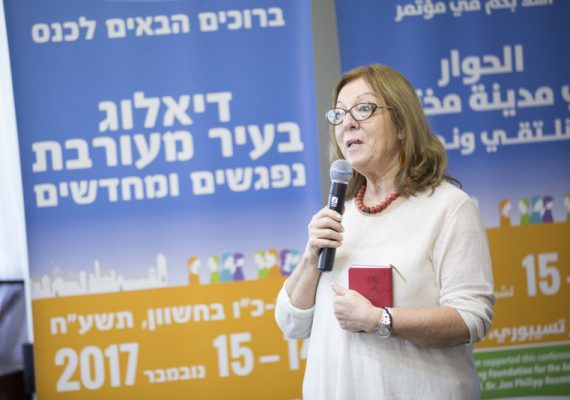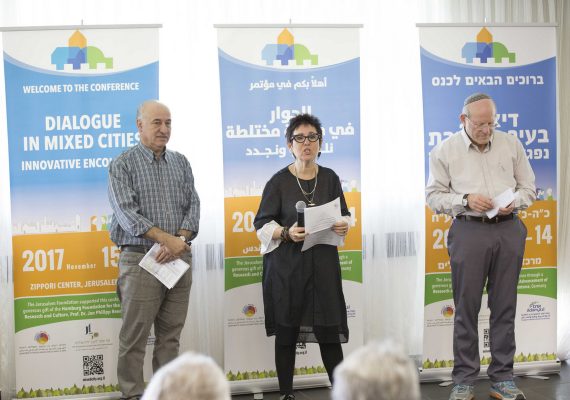
Facilitated by Haneen Hussein and Guy Aloni, history teachers at the school. Two teachers, two narratives, one class. Participants experienced a sample history lesson, in which 9th grade students learn about the “other’s” historical narrative. The facilitators demonstrated how narrative thinking can be a tool for analyzing reality and addressing conflict, by learning about other viewpoints and coming to accept that reality is too complex for there to be an absolute truth. By breaking down the dichotomies of good vs. bad and us vs. them, participants learn to feel empathy and respect towards the “other.” All school activities are rooted in language equality – beyond facilitating communication, bilingualism allows individuals to express their own culture. The school places Hebrew and […]






